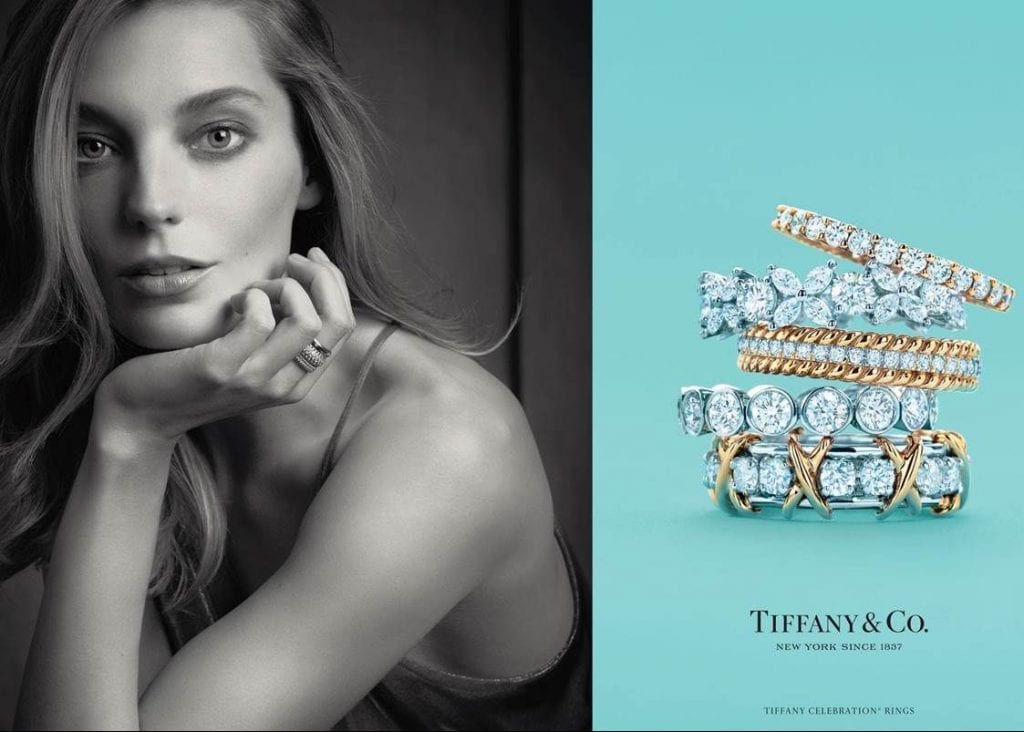Tiffany & Co. has won the very first round in its $16.2 billion battle with LVMH Moët Hennessy Louis Vuitton. After seeking to expedite trial proceedings in the lawsuit that it filed against luxury goods conglomerate LVMH earlier this month (a common move in a corporate case with a looming deadline), a Delaware Chancery Court judge has agreed to fast-track the case to an extent, setting a January 5, 2021 date for the luxury goods purveyors’ four-day trial. While the January date comes weeks after the November 24, 2020 deadline set out in the parties’ November 2019 merger agreement, Reuters notes that it still comes “before [the relevant] antitrust approvals begin to expire” next year.
In an order issued on Monday, Delaware Chancery Court Vice Chancellor Joseph Slights denied Tiffany & Co.’s initial bid for the case to be heard before the newly-extended November 24 deadline, but stated that it will expedite the matter to early next year. Vice Chancellor Slights stated that the early January 2021 trial date will give the two luxury heavyweights time to engage in “productive discussions” and potentially, reach a deal among themselves in order to “avoid the need for litigation” – and what Bloomberg’s Jef Feeley and Angelina Rascouet aptly assert could very turn into a “lengthy and expensive distraction at a time when the luxury world needs to focus on its recovery.”
The hearing on Monday comes just days after LVMH sought to squash Tiffany’s bid for an expedited trial, asserting in a filing last week that “there is no objective reason why the upcoming trial should not take place within a normal time frame,” arguing in a press release that “it is up to the Delaware court to determine who is in his right, and not the chairman of Tiffany through the press.” More than that, the Paris-based luxury goods giant asserted that “given the legal and financial issues at stake, [and] the context of a pandemic that obviously weighs on the ability of a European group to organize its defense in the United States, it seems … that sound justice requires a reasonable time be granted to rule on the matter.”
Against that background, LVMH, which has characterized Tiffany’s allegations as “totally unfounded” and even “defamatory,” argued that the case that Tiffany filed against it for seeking to back out of their previously-agreed-upon acquisition deal should be put on hold for as long as seven months.
Before appearing in court on Monday, counsel for Tiffany asserted in a separate filing with the court that an August 31 letter from the French Minister of Foreign Affairs urging LVMH to delay the deal until after January 6, 2021 – which LVMH is using as part of its basis for pulling out of the legally-binding acquisition – is not a valid “legal restraint” in accordance with the parties’ deal. As Bloomberg reported on Monday, citing Tiffany’s filing, “LVMH does not ‘contend that the Foreign Minister has any jurisdiction over the transaction,’ because they know European Union regulators handle antitrust reviews and French Foreign Minister Jean-Yves Le Drian can’t stop the deal.”
Meanwhile, European Union antitrust regulators said in a filing of their own that they will determine whether to give the merger the go-ahead by October 26. The European Commission – which has not yet made issued its findings on whether the merger will negatively impact competition in the European Union – can either “clear the deal with or without concessions or it can open a four-month long investigation if it has serious concerns,” per Reuters. The Commission one of the last remaining regulators needed to sign-off on the merger.
Ultimately, if the existing Tiffany and LVMH deal breaks down completely, as is certainly a possibility, assuming they do not arrive at a more palatable price than the $16.2 billion sum ($135 per share) that LVMH agreed to before the onset of the COVID-19 pandemic (which is one of the potential outcomes), analysts expect that other luxury players, including LVMH rivals Kering and/or Richemont, may end up vying for and winning the fabled jewelry company. After all, Morningstar analyst Jelena Sokolova says, “Tiffany is a strong brand and would be an appealing acquisition target” once the pandemic-ravaged market settles.
*The case is Tiffany & Co. v. LVMH Moët Hennessy-Louis Vuitton SE; Breakfast Holdings Acquisition Corp.; and Breakfast Acquisition Corp., 2020-0768 (Del. Ch.).













